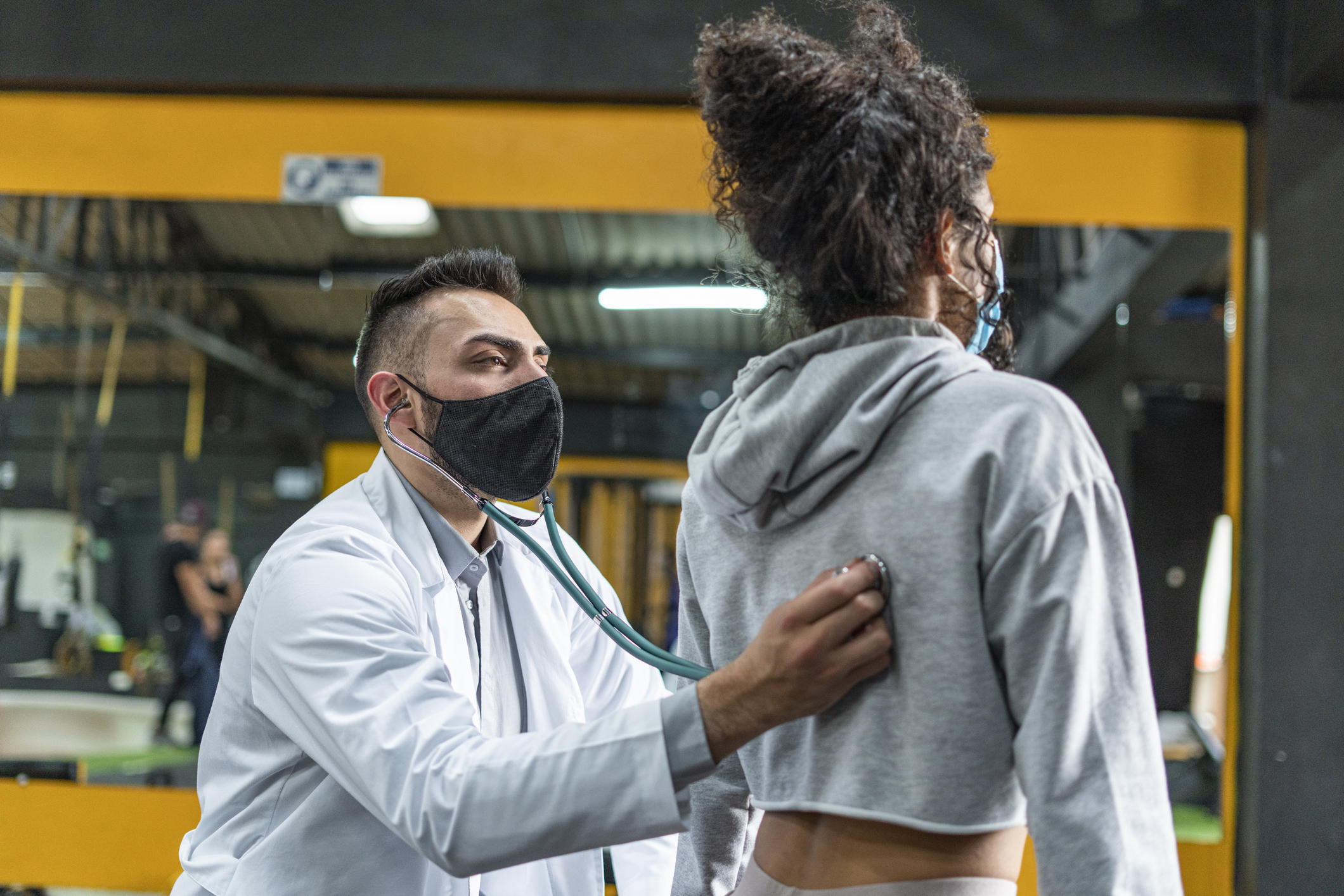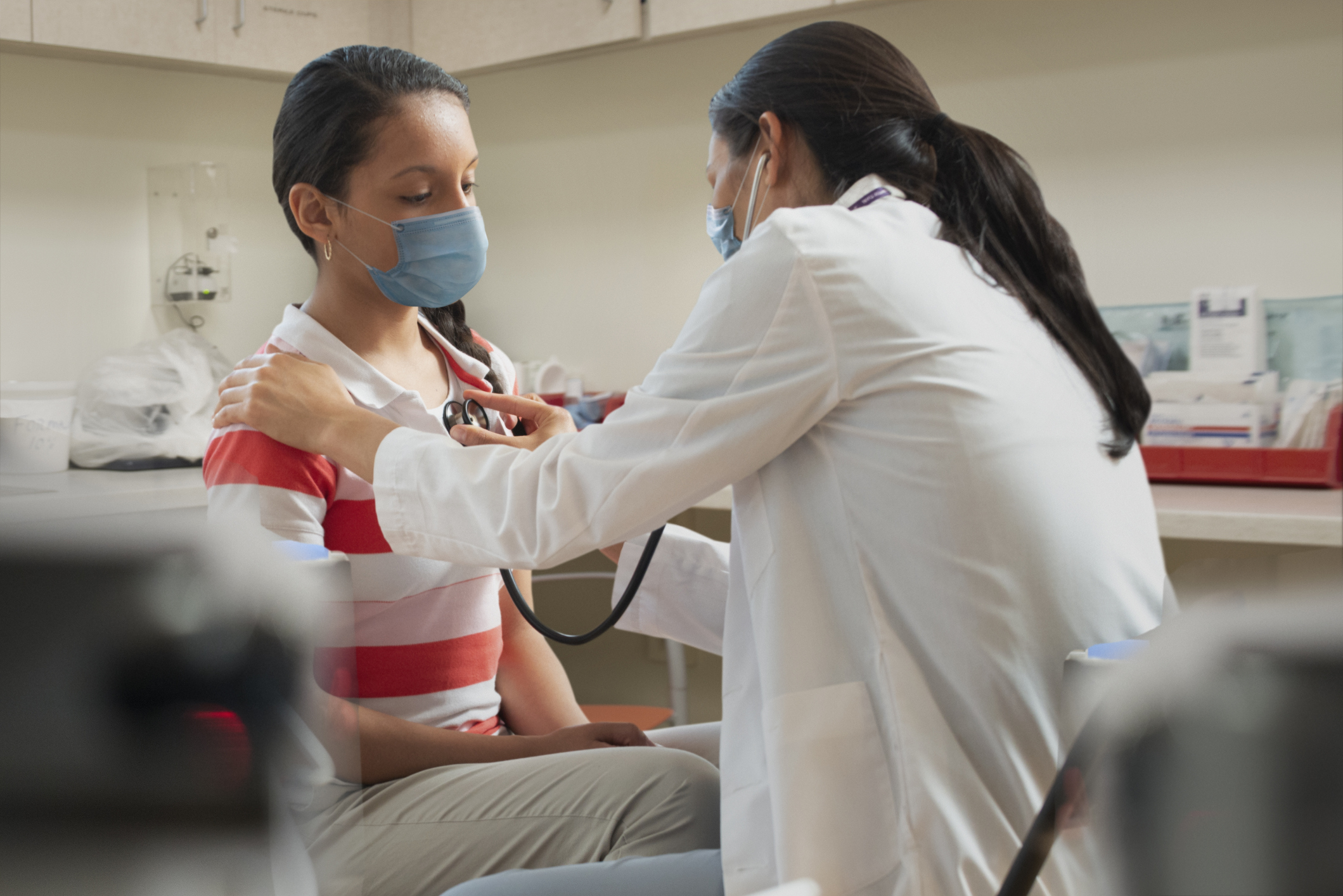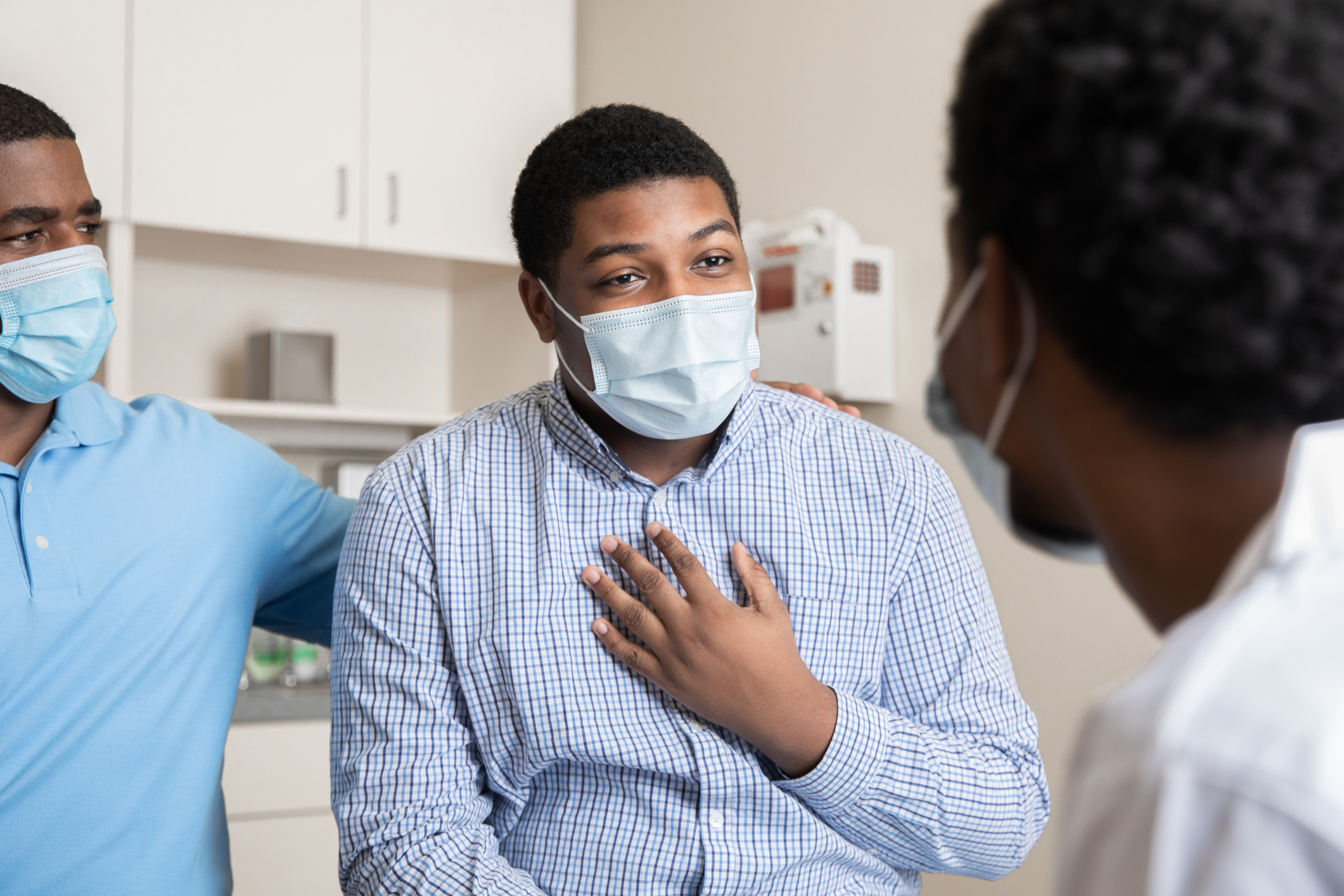While the vast majority of children will recover fully from COVID-19, student athletes have special considerations before returning to previous physical activity.
 “Our first priority is always the health and safety of student athletes,” Jerrad Zimmerman, MD, Carle Sports Medicine said. “That’s why it’s so important to share this information now with parents and school leaders so we can prevent any potential harm. The last thing we want to do is restrict athletes from participating but we want them to do so as safely as possible.”
“Our first priority is always the health and safety of student athletes,” Jerrad Zimmerman, MD, Carle Sports Medicine said. “That’s why it’s so important to share this information now with parents and school leaders so we can prevent any potential harm. The last thing we want to do is restrict athletes from participating but we want them to do so as safely as possible.”
Student athletes should work closely with their healthcare provider and their team’s certified athletic trainer on the proper progression to take when returning to playing sports.
“There is still a lot we don’t know about the long-term impact of COVID-19 on our health which is why we have built a step-by-step progression to help athletes progress back into sports to catch any underlying heart issues with conditioning, breathing or fatigue,” Dr. Zimmerman said.
Our certified athletic trainers have outlined steps to help safely return an athlete to play following the recommendations of leading Pediatric and Cardiology experts.
Remember, this is a gradual process. Complete these steps over days, weeks or months to track progress.
Return to Play Progression
A student athlete should remain in isolation for 10 days after a positive test. Then on day 10, they can work with their athletic trainer or healthcare provider to complete the questionnaire. If they had any symptoms that required advanced medical attention, they should receive clearance from their physician to start the Return to Play Progression.
 Day 10-12: Begin light activity such as walking, jogging, or stationary bike for 15 minutes or less at a light intensity. No resistance training.
Day 10-12: Begin light activity such as walking, jogging, or stationary bike for 15 minutes or less at a light intensity. No resistance training.- Day 13: Increase intensity and duration to add simple running drills for 30 minutes at moderate intensity.
- Day 14: 45 minutes of complex training and drills at moderate intensity. Add light resistance training.
- Day 15-16: Normal training for 60 minutes or progressing intensity from moderate to high intensity.
- Day 17: Return to full activity if move through the program without any symptoms of shortness of breath, excessive fatigue or trouble breathing.
Carle's Sports Medicine team offers the finest in clinical treatment to prevent injury, recover from injury and find just the right method of training. Carle, which also has collegiate partnerships with Parkland College, Danville Area Community College and the University of Illinois, works with more than 20 area high schools.
“Our athletic trainers excel in supporting healthy student athletes and stressing injury prevention. We’re confident in using science-based recommendations to guide sound medical advice,” John Flannel, supervisor, Carle Sports Medicine said.
His team of athletic trainers provides strength and conditioning programs, physician evaluations, injury prevention, rehabilitation and education. This includes covering hundreds of sporting events to provide immediate emergency care and injury evaluation.
“Our athletic trainers work with players and coaches to prevent these injuries and illness whenever possible, but when they occur, we’re a trusted healthcare partner to help provide treatment and facilitate rehabilitation to help athletes return stronger,” Dr. Zimmerman said.
Categories: Staying Healthy
Tags: COVID-19, pediatrics, Sports Medicine, student athlete
